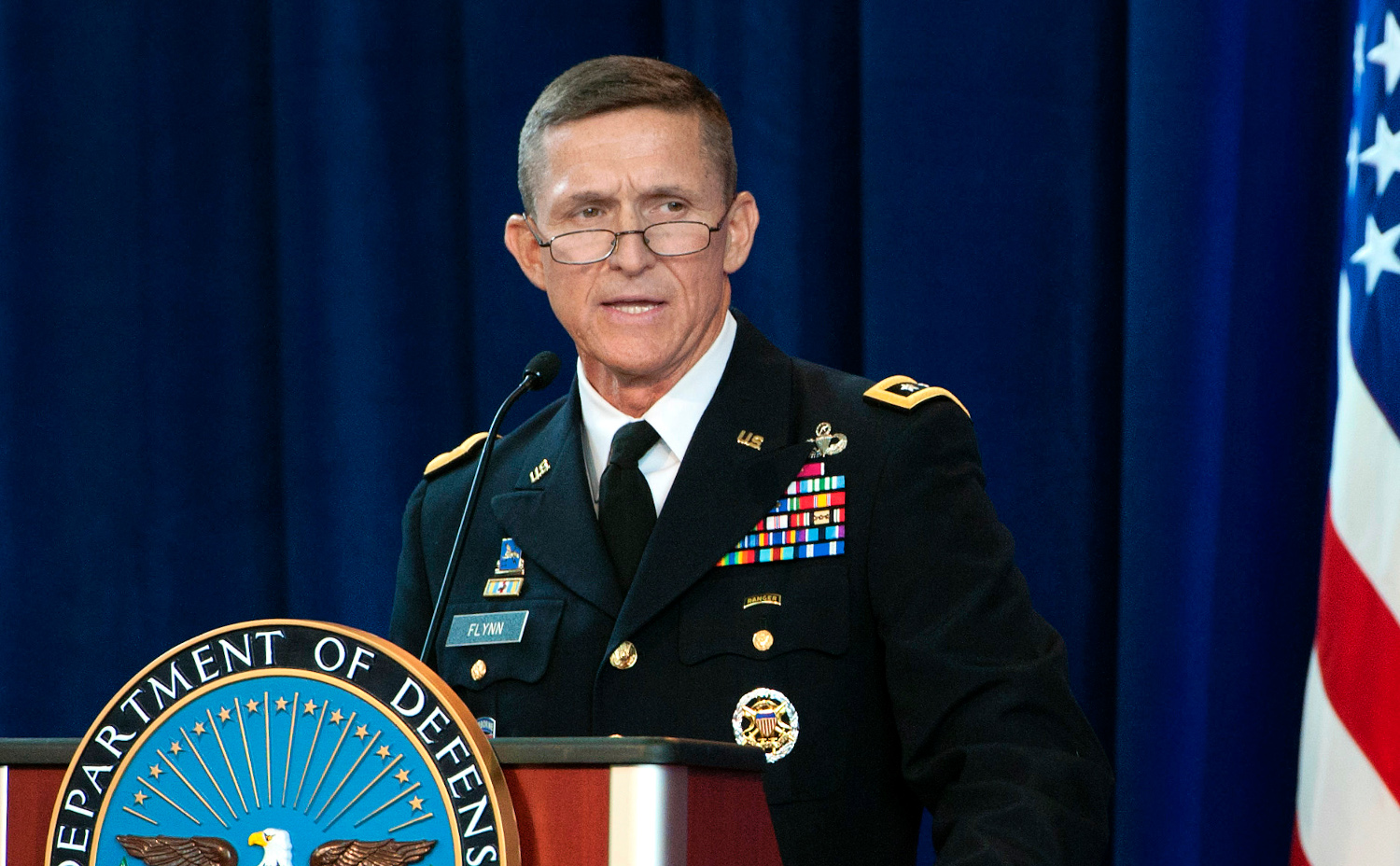by Eli Clifton
Last week, President-elect Donald Trump’s announced that Ret. Lt. Gen. Michael T. Flynn will serve as his national security adviser. The announcement was controversial due to Flynn’s embrace of Islamophobia – “fear of Muslims is RATIONAL,” he tweeted – calls for regime change in Iran, and his paid work on behalf of a Turkish businessman with close ties to Turkey’s president Recep Tayyip Erdogan.
But little attention has been paid to his role as vice chairman of a small drone company, Drone Aviation Holding Corp (DAC). The corporation received a series of Department of Defense contracts after he joined the company in April, while he was simultaneously serving as an adviser to the Trump campaign. If Trump follows through on his campaign promise to deploy more surveillance drones on the Canadian and Mexican borders, DAC would be well-placed to win even bigger contracts.
The company, which is developing a line of small, tethered, surveillance aircraft, issued a statement about Flynn’s new role saying that he “will work with Drone Aviation’s growing list of Department of Defense (‘DoD’), government agency and commercial customers to harness the unique data collection, communications and surveillance capabilities of the Company’s tethered tactical aerostat and drone platforms.”
Flynn’s appointment to DAC’s board on April 27, 2016 coincided with a series of DoD contracts that significantly contributing to the bottom line of a company valued at $25 million and whose stock currently hovers around three dollars per share.
Flynn is paid $36,000 per year for his work. He was issued 100,000 restricted shares, which will vest over two years, commencing with his appointment as a director last April. DAC also helped Flynn promote his book The Field of Fight: How We Can Win the Global War Against Radical Islam and Its Allies, cosponsoring a July 27 stop on his book tour in Herndon, Virginia with ACT! For America, an organization the Southern Poverty Law Center calls “the largest grassroots anti-Muslim group in America.”
In March, the month before Flynn was appointed to the board, the company was awarded a DoD contract “in excess $780,000” for a lighter-than-air surveillance and communications aircraft. That contract was followed by a $194,000 “upgrade contract” for the same project.
Following Flynn formally joining the company, DAC won a $125,000 contract in August “for equipment and engineering services including the integration of an advanced sensor suite for long endurance, persistent, tethered aerial applications for a current DoD customer.”
In October, they were awarded a $400,000 contract for the company’s electric tethered drone and a contract “valued at more than $200,000” for communications sensors integration onto its lighter than air UAV.
Drone Aviation Holding Corp. doesn’t market its products just for the DoD. Its website advertises that it “uses include border patrol, emergency response, search and rescue and law enforcement response to crowd management, hostage situations, and large event security and protection.”
Trump, who took Flynn on as a campaign adviser in February, embraced the idea of utilizing UAVs for border surveillance, alongside his initial plan to build a wall across the entire 2,000-mile southern border.
Twelve days before Flynn signed his contract with DAC, Trump told Syracuse.com that, if elected president, he would expand the deployment of drones on both the Canadian and Mexican borders for 24-hour surveillance of the borders.
“They would work in conjunction with the Border Patrol, who are fantastic people who want to do their job,” Trump told Syracuse.com. “I want surveillance for our borders, and the drone has great capabilities for surveillance.”
According to a federal audit published in January 2015, the decade-long use of surveillance drones on the borders cost more than initially estimated and the Department of Homeland Security’s inspector general found “little or no evidence” that border drones had performed effectively.
DAC spokesperson Michael Glickman confirmed to LobeLog that Flynn continues to serve as vice chairman of the company but could not comment on his future plans.
When asked if Flynn had taken steps to liquidate his shares, Glickman responded, “No, shares owned by Lt. General Flynn are currently restricted under vesting schedules commenced in 2016.”
The Trump transition team did not respond to a request for comment.





